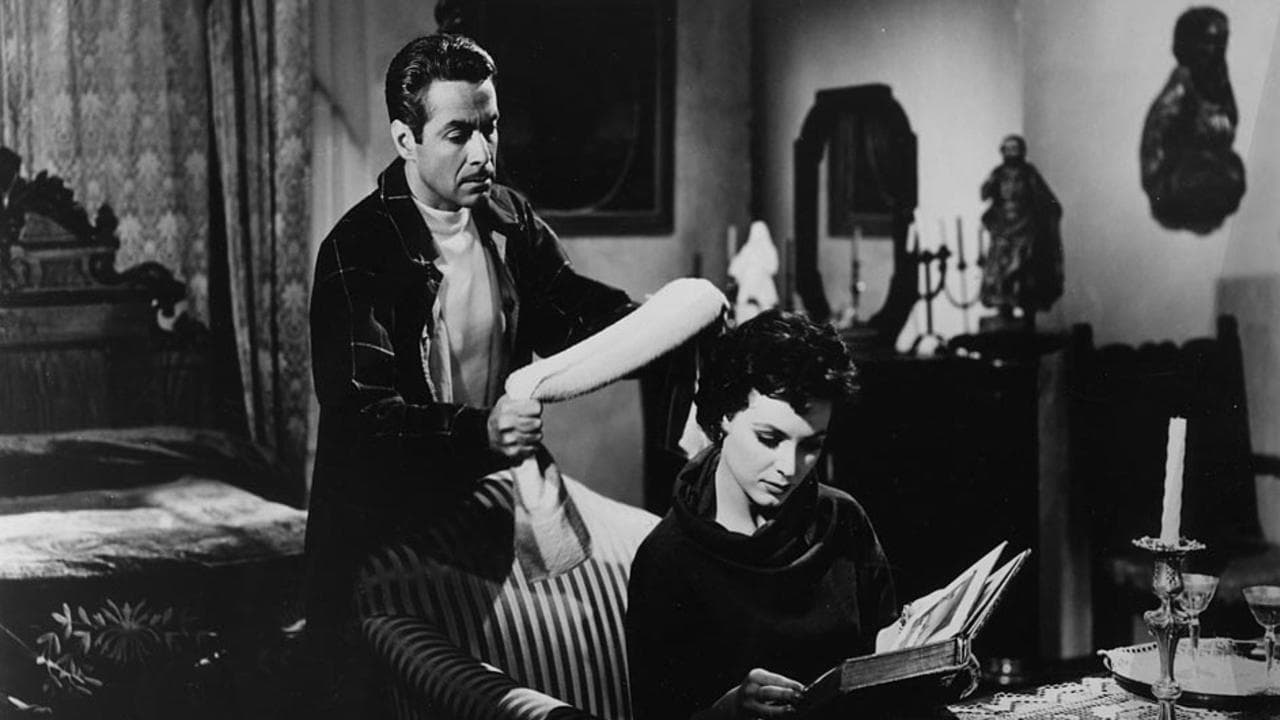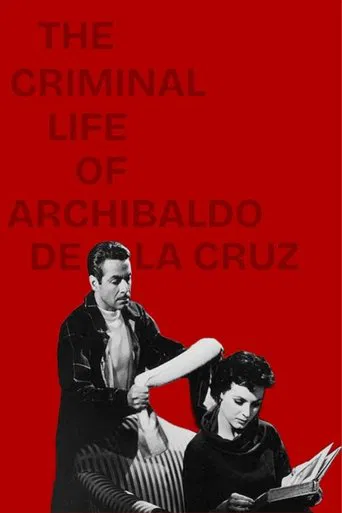

Criminal Life of Archibaldo de la Cruz, The (1955) ** 1/2 (out of 4)Luis Bunuel film that sounds more interesting than it turns out to be. As a young child, Archibaldo is told of a magical magic box that when turned on will kill. As an adult, Archibaldo comes across this box again and this times plans to use it to help him become a serial killer. There's a lot of black humor scattered throughout the film but very little of it made me laugh. The opening segments bashing the rich were funny but the film slowly falls apart in the middle and never regains any speed. The story is a very good one but the director does very little with it, which is a shame because this should have been a whole lot better.
... View MoreMy third Luis Bunuel film, and interesting enough, if not as good as the others I've seen so far (EL - ***, and BELLE DU JOUR - ***1/2). In this movie I missed being treated to some of director Bunuel's more representative stylish flourishes, and I didn't know quite what to make out of this erratic story about a laid back type of fellow who keeps getting the urge to murder the various women he encounters, only to have his plan sabotaged always at the last moment. I'm thinking this was intended to be a black comedy, but it didn't strike me as very humorous except in occasional moments. This seems more of a "middle of the road" Bunuel film, based solely on the few I've seen. The ending left me thinking about the female character (which I suspect may be the idea) but when I read the biography of the young actress Miroslava Stern and the circumstances of her premature death just two weeks after completing this film, it sort of gave me a chill... she committed suicide and was cremated. **1/2 out of ****
... View More"Ensayo de un Crimen" describes a man that after a childhood experience intimately connected with a music box revels in murder dreams - sex, pleasure and murder being intimately linked: In the time of the Mexican revolution his baby-sitter was killed by a stray bullet in front of him. As she is lying there dead and defenseless, blood running down her throat, going down her thighs, the boy feels deep pleasure and power. All this is punctuated by the sound of a musical box. In the chaos of the times the musical box disappears and these feelings are buried and forgotten. One day, Archibaldo de la Cruz, already a grown man, finds that musical box in a shop and, barely concealing his excitement, buys it and his old dreams come to the surface again.In the beginning of the film (after a mysterious accident suffered by a nun), he goes to the police station in order to confess a murder and tells the story of his life to the police chief. His life is shown in flashbacks and shows the life he led and the women he met. From now on it is difficult to tell reality from dreams.Buñuel is a very good actor's director and aptly describes the straight-jacket morality of the time where official marriage is mandatory (for women this is like a prison where the warder is her husband), and the icons of the catholic church are a dominant presence. Here are the essential elements present in the films of Buñuel. Fantasy/ Reality, double-standard morality and the church - the only road to freedom seems surrealism, fantasy overtaking reality.Buñuel's films are sensuous and full of atmosphere and here as usual reality is not what it seems. Even if he, in his early Mexican films, seems to make concessions to the producers, you will notice under the surface all the themes that obsessed Buñuel and that would come to the foreground in films like "Viridiana", "El Angel Exterminador", "Belle de Jour" etc..
... View MoreI disagree with another reviewer who said this movie is not interesting to watch. I've seen Los Olivados, El Angel Exterminador, L'Age D'Or and Un Chien Andalou and i thought Archibaldo matched up well alongside them. I found it both interesting/sensual/compelling and with interesting meaning."The Criminal Life of Archibaldo de la Cruz" begins with a childhood memory of Archibaldo's governess making up a myth about Archibaldo's new music box, to distract him from misbehaving: "The King compelled (his Queen) to look at him, but she lowered her eyes, and the King took it as a sign of guilt. Without a second thought he opened up the little music box and immediately the queen was struck dead." As she is telling this story, and gets to the part of the Queen looking down, Archibaldo's governess looks down. Once she finishes, she hears gunfire outside (there is a revolution going on), and goes to the window to look at it. Archibaldo immediately desires to open the music box, with his governess in mind, and at that same moment a stray bullet from the fighting in the street breaks through the window and kills the governess.We cut to Archibaldo telling this story to a Nun, who dismisses his childhood memory, "I think you like to pass yourself off as being wicked." She leaves the room, and Archibaldo retrieves a flick-knife from his drawer. When she returns, he is standing by the door.Archibaldo: You always want to be in the good graces of god? Well, then, wouldn't you be glad to die since it means eternal bliss? Nun: Of course... but why? Archibaldo: (pause) I'll give you that joy.Archibaldo de la Cruz is a fascinating look into the meaning of the label "criminal." I believe you need to go into a Bunuel movie not having heard too much about it, to get full enjoyment out of it, so i won't say anything else, just commend it to you. If you've never seen a Bunuel movie, i would start with El Angel Exterminador, then you'll be hooked and won't be able to keep from checking this and others out.
... View More